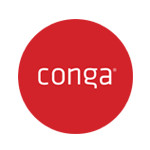Merck’s Patent Loss a Cautionary Tale for In-House Attorneys
Merck & Co.’s loss of a $200 million jury verdict for patent infringement shows that companies with internal prosecution staff need to observe strict rules for external communications, according to Bloomberg Law.
“The U.S. Court of Appeals for the Federal Circuit affirmed a district court’s judgment that Merck could not collect the award because of its ‘unclean hands’ in procuring the two patents asserted against Gilead Sciences Inc.,” writes Tony Dutra. “Under the unclean-hands doctrine, the lower court was reasonable in wiping out the entire amount because Merck’s patent attorney’s misconduct in 2004 directly affected its litigation position in 2013, the appeals court said.”
A Merck in-house lawyer listened in on a 2004 phone call during which another company divulged information on a compound being developed. The lawyer — despite being under a nondisclosure agreement — subsequently changed a Merck patent application that was in the works, narrowing the applied-for patent claims to cover what the other company disclosed, Dutra explains.









